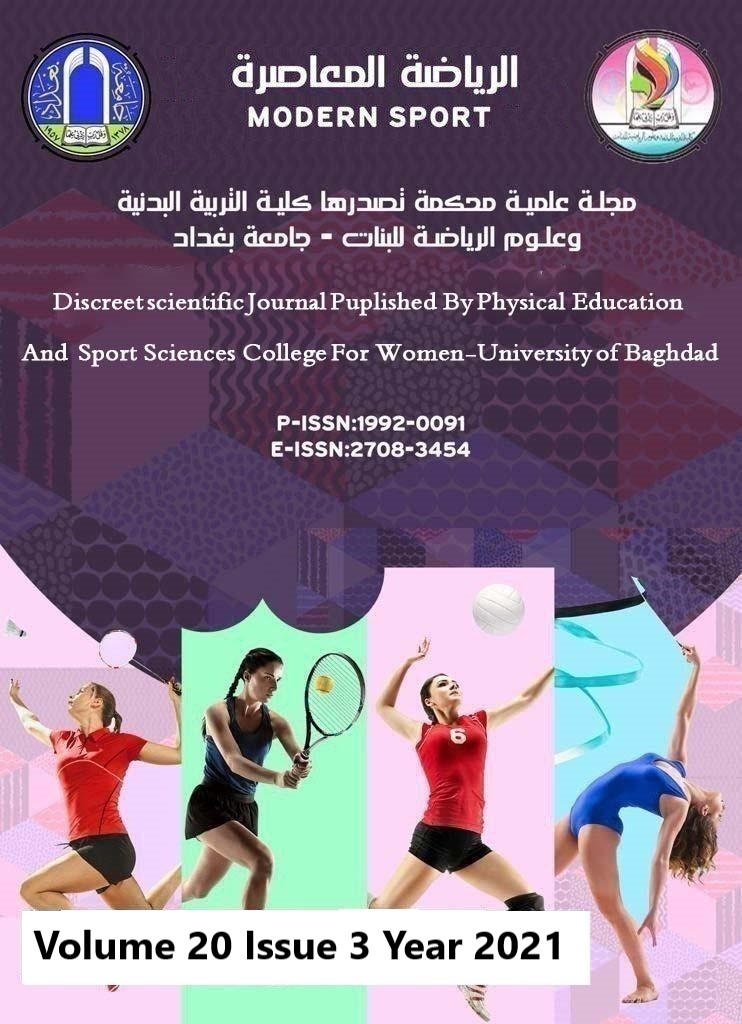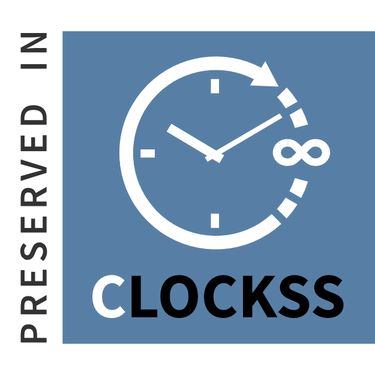The Impact and effect of caffeine on the improvement of muscle strength of students in the college of physical education and sports at Al-Aqsa University
DOI:
https://doi.org/10.54702/msj.2021.20.3.0152Abstract
The study aimed to acknowledge the impact of caffeine on the improvement of muscle strength of students in the college of physical education and sports at Al-Aqsa University, the researchers used the descriptive method, and the sample (21 students) were a first-year physical education and sports students. The most important result was that one hour after the caffeine were taken, there was a significant change in the results of the muscle force tests, as follows: For strength endurance, the stomach test had time (30 seconds), the improvement rate was 11.45%. For pressure testing, the rate of improvement was 11.45%. And the pressure of the inclined recline test, the improvement rate was 13.51%, As for the speed, the broad jump test, the improvement rate reached 7.27%, To test the thrust of the medical ball, the improvement rate was 7.91%, As for the maximum strength component of the dead lift test, the improvement rate was 9.53%, and for the knee bending test, the improvement rate was 7.5%. For chest push ups testing, the improvement rate was 10.64%. Caffeine was used as a nutritional supplement containing caffeine anhydrous in an amount of 200 mg, from 2.5 to 3.5 mg/kg each dose of student's weight. Additionally, many previous references that include caffeine were scanned, which our study matched with some of these ones, using the average dose
References
بني هاني، أيهم. (2015). تأثير الكفايين والكربوهيدرات على مسافة الجري خلال اختبار كوبر بعد التمرين – المسبب جفافاً وبعض المتغيرات البيوكيميائية عند لاعبي التحمل (رسالة ماجستير غير منشورة)، كلية التربية الرياضية، جامعة اليرموك، الأردن.
التعمري، صفية. (2015). تأثير تناول الكفايين على تحمل جرعات عدو متكررة ومتغيرات وفسيولوجية (رسالة ماجستير غير منشورة)، كلية التربية الرياضية، جامعة اليرموك، الأردن.
جمال، مروة. (2013). مادة الكفايين وكيف يؤثر على الصحة. (مقال) مجلة وصلة. 9 . القاهرة: الهيئة المصرية العامة للكتب.
خربيط، ريبسان؛ وعبد الفتاح، أبو العلا. (2016). التدريب الرياضي، ط. القاهرة: مركز الكتاب للنشر.
خريسات، جواد. (2019). تأثير التستوستيرون والكافيين على الهرمونات المنتجة للطاقة وزمن تحمل الأداء البدني عند مشتركي مراكز اللياقة البدنية (رسالة ماجستير غير منشورة)، جامعة اليرموك، الأردن.
الذنبيات، بكر؛ والدوايسة، عبد الحافظ. (2020). تأثير الفترات الزمنية لتناول مادة الكافيين على متغيري نبض القلب والجهد المدرك لدى لاعبي جري المسافات الطويلة اثناء الجهد البدني متوسط الشدة. مجلة المنارة للبحوث والدراسات. 2 (26). ص 119-140
الذنبيات، بكر. (2018). مدى تأثير الكافيين على بعض المتغيرات الفسيولوجية لدى لاعبي جري المسافات الطويلة (رسالة ماجستير غير منشورة)، الجامعة الأردنية، الأردن.
السعداوي، إسراء محمد، إبراهيم السعداوي، سكينة والهبيل، صلاح (2016). تقدير تركيز الكافيين في بعض المشروبات وتأثير استهلاكه على عينة من طلبة جامعة طرابلس. المؤتمر العملي الأول للأمن الغذائي وسلامة الأغذية، مصراتة، ليبيا. ص 10-24
خزعل، عبد. (2015). أثر الكافيين المصاحب لحمل المنافسة في بعض المتغيرات الكيموحيوية والمسافة المقطوعة وسرعة الجري لدى لاعبي كرة القدم الشباب. مجلة علوم التربية الرياضية.5 (8). ص 230- 246
علي، محمد حسن محمد (2018). دراسة العلاقة بين بعض متغيرات القوة العضلية داخل وخارج الماء واستراتيجية وزمن سباحة 200م حرة. المجلة العلمية لعلوم وفنون الرياضة للبنات، 51 . ص 135 – 174.
مهران، صالح. (2019). تأثير الكافيين على مؤشرات الأداء البدني ومكونات الدم لدى لاعبي المصارعة. مجلة أسيوط لعلوم وفنون التربية الرياضية، القاهرة. ص 98-122
الهزاع، هزاع. (2008). مادة الكافيين والأداء البدني، المجلة العربية للتغذية والغذاء . العدد 18 ص 45-66
الجبالي ,عويس. (2003). التدريب الرياضي -النظرية والتطبيق. ط4. القاهرة: دار الفكر العربي.
Aleksandra Filip-Stachnik et al (2021). The effects of different doses of caffeine on maximal strength and strength-endurance in women habituated to caffeine, Mar 30;18(1):25.
Astorino Todd 1, Michael N Terzi, Daniel W Roberson, Timothy R Burnett (2011). Effect of caffeine intake on pain perception during high-intensity exercise, International journal sport nutrition exercise, Volume 21, Issue 1:27-32.
Del coso, J: Munoz, G (2011). Prevalence of caffeine use in elite athletes following its of banned substances.Appl. Nutr.Metab, Aug;36(4):555-61
Duncan, Michael JMichelle Stanley, Natalie Parkhouse, Kathryn Cook & Mike Smith (2013). Acute caffeine ingestion enhances strength performance and reduces perceived exertion and muscle pain perception during resistance exercise, European Journal of Sport Science, 13:4, 392-399.
Hudson GM1, Green JM, Bishop PA, Richardson MT. (2008), Effects of caffeine and aspirin on light resistance training performance, perceived exertion, andpain perception, journal of Strength & Conditioning Research, 22(6).
G, Dolby M, Steele J, Fisher JP. (2020). A low caffeine dose improves maximal strength, but not relative muscular endurance in either heavier-or lighter-loads, or perceptions of effort or discomfort at task failure in females. May, PeerJ 8:e9144 DOI 10.7717/peerj.9144.
Gonglash AR,Ade CJ, Bemben (2016). Muscle pain as regulator of cycling intensity: effect of caffeine ingestion. Med Sci Sports Exer, Feb;48(2):287-96.
Gordon L Warren et al (2010). Effect of caffeine ingestion on muscular strength and endurance: a meta-analysis, Medicine & Science in Sports & Exercise, Jul;42(7):1375-87.
Grgic J, Trexler ET, Lazinica B, Pedisic Z. (2018). Effects of caffeine intake on muscle strength and power: a systematic review and meta-analysis, Journal of the International Society of Sports Nutrition, Mar
Jozo Grgic, Craig Pickering (2019). The effects of caffeine ingestion on isokinetic muscular strength: A meta-analysis, Journal of Sports Science & Medicine, Mar, ;22(3):353-360.
Nilewolf,N. (2008). steroids and their impact on athletic performance, an article published.
Tomas D Timmins 1, David H Saunders (2014). Effect of caffeine ingestion on maximal voluntary contraction strength in upper- and lower-body muscle groups, Medicine & Science in Sports & Exercise, Jul;42(7):1375-87.
Wanyika, H. N., Gatebe, E.G., Gitu, L. M., Ngumba, E. K. and Maritim, W. (2010). Determination of caffeine content of tea and instant coffee brands found in the Kenyan market. African Journal of Food Science 4(6), pp. 353-358.















